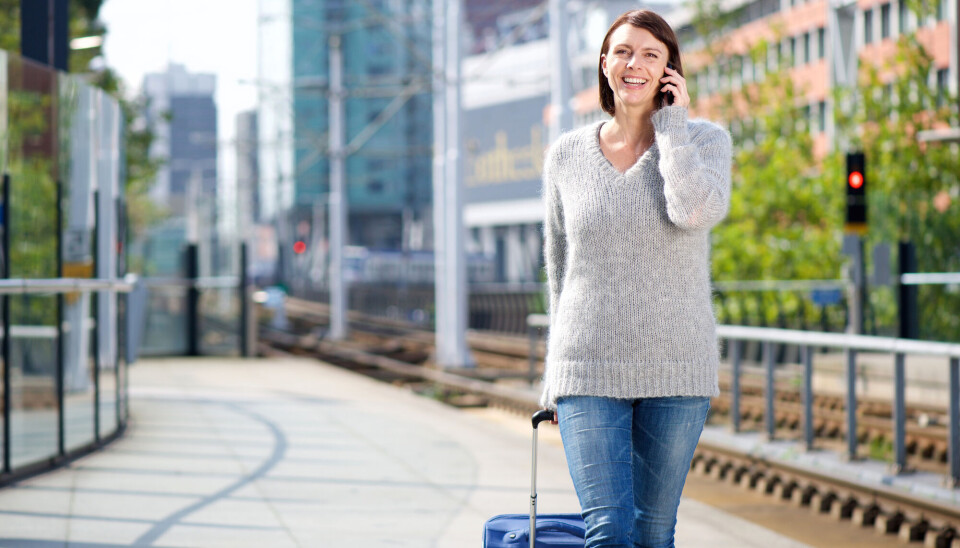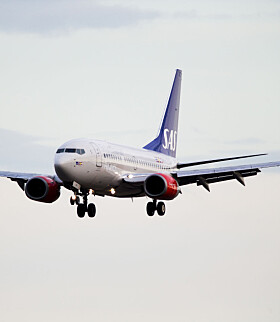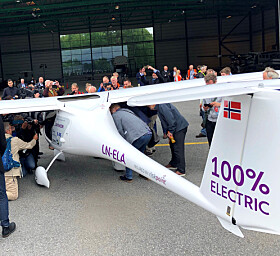
Can't we just stop travelling by air for business?
We’re encouraged to fly less. But what if your company keeps sending you on trips?
Holiday trips are sacred for many of us, and we defy the shame of flying and take annual trips to warm southern climes or a city break to Paris or New York.
But what about our business trips? If we cut them out, we would reduce our climate footprint considerably.
Tom Erik Julsrud is head of research at the University of Oslo’s Center for International Climate and Environmental Research (CICERO). He recently carried out a study on business trips in Norway.
His findings show that the pandemic impacted companies' need to send people on trips. Many physical meetings have been replaced by digital ones.
"But air travel has started to increase again, and business travel appears to be on the rise," Julsrud says.
"Will it level off, or will it go even higher than before the pandemic?” he asks.
Differs from leisure travel
Julsrud points out that business travel is quite different from leisure travel, and they differ from each other in some important respects.
Business trips are more purpose-oriented and less experience-oriented.
They are managed by the company and the employer, not by the individual wishes or preferences of the person actually travelling.
“They can also be replaced more easily with technology,” says Julsrud.
Between 30 and 40 per cent of all flights have been business trips in recent years. In 2022, it was 33 per cent, according to Julsrud.
He found that people generally go on business trips for three reasons:
- They are attending meetings, such as board meetings or contract meetings.
- They are going to conferences.
- They are contributing operational assistance – for example, engineers who are dealing with technical issues.
Employees have minimal input
Leisure travel is characterized by people's wishes and dreams, while business travel has more structural conditions. These conditions include practical things, such as where the company's various departments are located or who the partners or suppliers are.
“Location dictates how business people travel,” says Julsrud.
“Many large businesses are part of international networks, which also affects the travel expectations,” says Julsrud.
Companies need to change
So maybe the responsibility for reducing air travel lies with the companies and employers instead of with the employees?
“I believe that companies should do what they can to reduce flights that aren’t absolutely necessary and replace them with public transport or the use of digital solutions,” says Julsrud.
“Flights are a significant source of emissions by businesses, and most businesses probably still have great potential to reduce their emissions impact. The pandemic clearly showed that many companies were able to maintain their activities for longer periods without travelling.”
Julsrud believes we should be able to expect figures to be included in the sustainability accounts that show emissions from flights. And companies should document how they are working to reduce emissions to a minimum.
“Nevertheless, the greatest potential for reductions clearly lies with leisure travel, where we’ve seen the strongest growth in recent years,” Julsrud says.
“We also have to expect some business trips by air to continue as long as we’re part of a global economy where informal communication and contact are difficult to avoid completely.”

Employees travelling less
Three companies took part in a survey for the recent study, which has not yet been published in a scientific journal.
It turns out that employees are travelling to meetings less by plane now than before the pandemic. They are also more critically assessing whether a trip is necessary.
About half of the respondents had flown in the past year. Just over half travelled domestically and 40 to 45 per cent travelled abroad.
The study also shows that people now have more digital meetings, replacing many of the meetings they would have previously travelled to.
Will business travel decrease even more?
When asked whether they expect to travel less by plane in the future, however, most companies are unsure and answer that they don't know.
“People don't quite know whether they’ll be travelling more for work in the future or not. Some think it will be less, some think more,” says Julsrud.
He believes the reason for this may be that meetings that can be replaced by video conferences and the like have already switched over to this. Meetings are often subject to external factors that employees do not exercise any control over.
Technology cannot replace all contact in the future, believes Julsrud, who presented some of the findings from the study at a recent conference about air travel.
Why do people go to meetings?
Julsrud is trying to find out why people still go to meetings.
Several survey respondents answered that the most important reasons stated were the need for informal communication and conversations, and that stakeholders are expected to be present.
Another reason given for travel to meetings was the need to carry out complex tasks, investigations and observations on site.
“These responses show that a number of norms are involved in being present at meetings. This doesn’t mean that these norms can’t be changed, but some counter-forces can make it more difficult for employees to further reduce their flights,” says Julsrud.
Economy more than climate
As mentioned, several of the companies in the study have taken their experiences from the pandemic and now travel on fewer business trips by air.
“I think we have an opportunity to make these changes more permanent. But companies and enterprises have probably not started to fly less primarily for climate reasons, but more for financial reasons.”
“And everyone has learned to use technological tools more than before.”
Julsrud believes that "saving" on travel in climate accounting is becoming more and more important. There will probably be increasingly more requirements for it as well.
“But I don't think it will have a huge effect in the short term,” says Julsrud.
“A lot of knowledge companies work with numerous complex tasks that require informal dialogue and being together in one place.”
“And norms are often difficult to change.”
“So I don't think we’ll see huge changes in business travel in the near future.”
Translated by: Ingrid P. Nuse
References:
The study is published as part of the project "AVIATE: How can aviation contribute to a low-carbon society?"
Read the Norwegian version of this article on forskning.no
-----





































